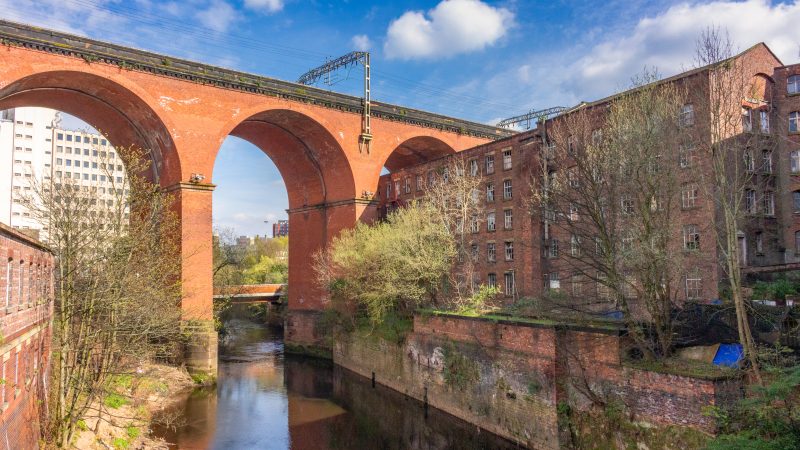
Labour’s offering for the next general election is rooted in the idea that the basics in Britain aren’t working. The narrative centres on the government’s underfunding of public services. But scratch a little deeper, and the shortcomings of a different public framework – our regulatory system – become clear. At the same time, so does an opportunity for Labour.
For three years, Unchecked UK has, been listening to voters and businesses across the country, exploring their views towards social and environmental protections.
We’ve heard a consistent message. Contrary to the claims of the European Research Group or the Conservative right, the UK is not clamouring for mass deregulation.
Whether it’s swing voters in the ‘Red Wall’, traditional Conservative voters in the ‘Blue Wall’, Leave voters, or voters in Wales, we find no appetite for a weakening of protections. Indeed, there are votes to be won for whichever political party is brave enough to stand up for strong, well-enforced rules.
Strengthened regulation is popular with key voters
Our latest round of focus groups, carried out with More in Common, clearly highlights this opportunity.
From Redcar and Blyth, to Hitchin and Harpenden, to the traditional swing seats of Stevenage and Erewash, Hastings or Swindon, the message from voters is clear: to win their support, Labour must advocate for strong social and environmental protections.
These voters – frustrated with businesses getting away with polluting rivers or failing to pay their staff the minimum wage, and rapidly losing trust in the political establishment post Partygate – hold no truck with any weakening of regulations. On the contrary, a clear commitment to properly-enforced rules could play a key part in convincing voters that Labour is on their side and will stand up to rule-breakers.
In the words of one participant from Long Eaton in Derbyshire: “[The government should] ensure that everybody abides by the same rules. I think particularly with what’s going on with the government at the moment…everything that happened during Covid, it seems to me there’s a set of rules for some people and a set of rules for other people.”
A level playing field of standards
There is an overwhelming recognition from key voters that good regulation can act as the great equaliser; creating a level playing-field and ensuring that everyone benefits from the same basic standards and protections. These voters see strong rules as vital to protecting the green spaces and communities they love – a key driver for them when thinking about who to elect next year.
As one voter from Stevenage said: “At the end of the day we have standards that are already established. It’s just that unfortunately people are ignoring them. Just give them harsher penalties and they won’t [break the rules].”
And it is not just ordinary voters who favour sensible regulation. Our recent collection of essays brings together leading business voices to explain why regulation is good for growth. These businesses maintain that good regulation is the scaffold around which the economy can sustainably grow, and provides the stability where long-term investment decisions can be taken with confidence.
Establishing good regulations, enforced by strong regulators is win:win. And this is where the opportunity for Labour lies.
There is a golden thread of regulation which links all the salient electoral issues confronting voters and the policy plans which the Labour Party has outlined.
From clearing up our air, rivers and seas; closing the tax gap; driving up food standards; and keeping our children safe online, to bringing down energy prices; delivering net zero; tackling fly tipping; and improving workers’ rights – all of these ambitions require robust regulations, alongside properly-resourced enforcement agencies, which have the power to take on rule-breakers.
We need to beef up our regulators
Unfortunately, many of our regulators are suffering from the twin challenges of dwindling resources and insufficient powers, leaving key protections undermined, and rule-breakers unchecked.
The Labour Party should set out a new vision for our public protection infrastructure and become a strong proponent of the protections which we know voters want. In doing so, they can deliver on their promises. Indeed, Labour’s desire to demonstrate economic competence and grow the economy will only be possible with strong regulations, enforced by agencies with the tools for the job.
This approach will deliver a return on investment. Every £1 spent on waste-crime enforcement yields a return of up to £5.60. Trading Standards services generate £6 of consumer savings for every £1 invested. And every £1 spent on tax enforcement generates £15 in tax income.
But crucially, and as this latest research shows, there is also an electoral dividend to be reaped.
By outlining a vision for a Britain where strong rules protect the vulnerable, ensure fair play, and effectively deter rule-breakers, Labour can start to rebuild trust in the political system, and remind voters that it is a party of stability and security, of high standards, and fair rules.




More from LabourList
Welfare vote: ‘Here are the failures it reveals – and three faint silver linings’
Welfare vote: Which Labour MPs voted against bill or backed new amendment?
‘Welfare reforms still mean a climate of fear. Changes are too little, too late’